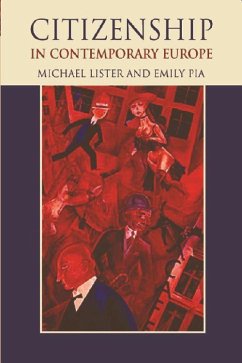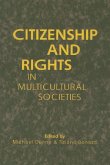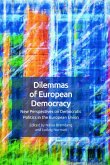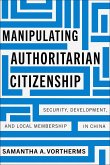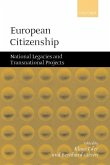In the era of globalisation, European integration, mass migration, and changing patterns of political participation and welfare state provision, the precise shape and structure of citizenship in Europe seems to be altering. This book explores these developments through an analysis of a range of perspectives, uniting a theoretical orientation with an empirical approach. The central theme of the book is that the way in which we assess the impact of changes in migration, political participation, etc. on citizenship depends upon how we view citizenship theoretically.
The text is divided into two sections. In the first section, the book identifies three main theoretical approaches to citizenship: classical positions (liberal, communitarian and republican); multiculturalist and feminist theories of citizenship (and how they are, in different ways, concerned with the question of difference: how can citizenship most appropriately deal with different identities?); and finally, the further challenge raised by post-national or cosmopolitan theories of citizenship.
The second section of the book focuses on four key social, economic and political developments which pose challenges for citizenship in Europe: migration, political participation, the welfare state and European integration. These issues have been chosen as they represent the most significant challenges to and for citizenship in contemporary Europe. They raise questions of identity, belonging, participation, welfare -- all key themes for citizenship. They also reflect T.H. Marshall's civil, political and social spheres of citizenship. In each of these areas, changes and/or developments raise crucial questions for citizenship:
The increase in the movement of people within and across Europe poses a series of challenges to national citizenship which centre around questions of identity, borders, rights and communities.
Formal political participation in many countries is in decline. Is citizenship in decline, or is it rather that citizens are changing the ways in which they express themselves politically?
If not actually in decline, the welfare state is widely considered to be at least under pressure to be reformed. The central question is: what are the implications of any changes in the welfare state for citizenship?
The process of European Integration impacts upon citizenship in two important ways: the EU impacts upon national citizenship, as it affects state provision and policy across a range of policy areas; there is also the issue of European citizenship as a burgeoning post-national citizenship. So what is citizenship of the European Union and what does it mean? All of these issues raise fundamental questions about the status and meaning of citizenship in contemporary Europe.
Key Features:
Unites theoretical reflections on citizenship with a wide range of contemporary citizenship issues
Hinweis: Dieser Artikel kann nur an eine deutsche Lieferadresse ausgeliefert werden.
The text is divided into two sections. In the first section, the book identifies three main theoretical approaches to citizenship: classical positions (liberal, communitarian and republican); multiculturalist and feminist theories of citizenship (and how they are, in different ways, concerned with the question of difference: how can citizenship most appropriately deal with different identities?); and finally, the further challenge raised by post-national or cosmopolitan theories of citizenship.
The second section of the book focuses on four key social, economic and political developments which pose challenges for citizenship in Europe: migration, political participation, the welfare state and European integration. These issues have been chosen as they represent the most significant challenges to and for citizenship in contemporary Europe. They raise questions of identity, belonging, participation, welfare -- all key themes for citizenship. They also reflect T.H. Marshall's civil, political and social spheres of citizenship. In each of these areas, changes and/or developments raise crucial questions for citizenship:
The increase in the movement of people within and across Europe poses a series of challenges to national citizenship which centre around questions of identity, borders, rights and communities.
Formal political participation in many countries is in decline. Is citizenship in decline, or is it rather that citizens are changing the ways in which they express themselves politically?
If not actually in decline, the welfare state is widely considered to be at least under pressure to be reformed. The central question is: what are the implications of any changes in the welfare state for citizenship?
The process of European Integration impacts upon citizenship in two important ways: the EU impacts upon national citizenship, as it affects state provision and policy across a range of policy areas; there is also the issue of European citizenship as a burgeoning post-national citizenship. So what is citizenship of the European Union and what does it mean? All of these issues raise fundamental questions about the status and meaning of citizenship in contemporary Europe.
Key Features:
Unites theoretical reflections on citizenship with a wide range of contemporary citizenship issues
Hinweis: Dieser Artikel kann nur an eine deutsche Lieferadresse ausgeliefert werden.

